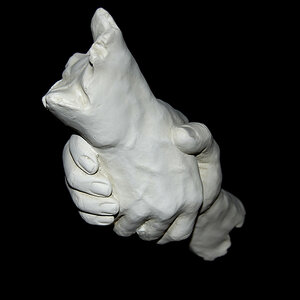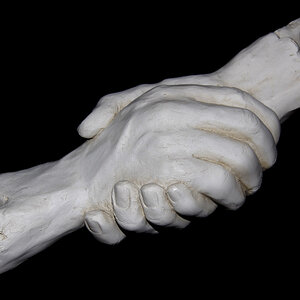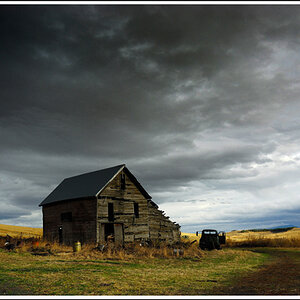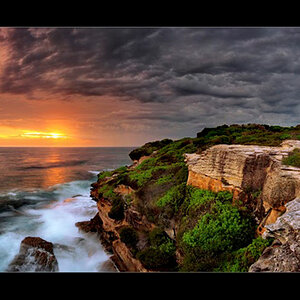Peter Solano
TPF Noob!
- Joined
- Sep 3, 2010
- Messages
- 3
- Reaction score
- 0
- Location
- Barranquilla, Colombia
- Can others edit my Photos
- Photos NOT OK to edit
Hi everyone, this is my first time here, and I ignore if the proper place to post my questions. I sell my work in person on a DVD visiting potential customers.
Last time I noticed a woman that was looking at my work and liked two of my photos, clicked on them and used Ctrl+C to STEAL my work.
Needless to say I did not make a sell. Unfortunately they were in high resolution ready for printing, so I am sure she now has tow of my photos hanging on her wall free of charge.
While I spent countless hours working on them.
Is there a way I can protect my work? That photos could be shown but not copied?
Long time ago at a site ( I forgot the name of it) I saw a picture I liked, clicked on it, the photo enlarged, saved it. Saw it in my computer as a small thumbnail. clicked on it to enlarge it and a big blank square appeared in place of the photo. That is the kind of protection I need.
Would someone know the name of such a program or a similar one/ I would not mind spending a couple of hundred dollars to protect my work.
Any help would be greatly appreciated. Thank you.
Peter Solano
www.flickr.com/photos/petersolano/
Last time I noticed a woman that was looking at my work and liked two of my photos, clicked on them and used Ctrl+C to STEAL my work.
Needless to say I did not make a sell. Unfortunately they were in high resolution ready for printing, so I am sure she now has tow of my photos hanging on her wall free of charge.
While I spent countless hours working on them.
Is there a way I can protect my work? That photos could be shown but not copied?
Long time ago at a site ( I forgot the name of it) I saw a picture I liked, clicked on it, the photo enlarged, saved it. Saw it in my computer as a small thumbnail. clicked on it to enlarge it and a big blank square appeared in place of the photo. That is the kind of protection I need.
Would someone know the name of such a program or a similar one/ I would not mind spending a couple of hundred dollars to protect my work.
Any help would be greatly appreciated. Thank you.
Peter Solano
www.flickr.com/photos/petersolano/







![[No title]](/data/xfmg/thumbnail/38/38265-4b75e7e05f8bf906800580ac7f7ddf60.jpg?1619738549)








